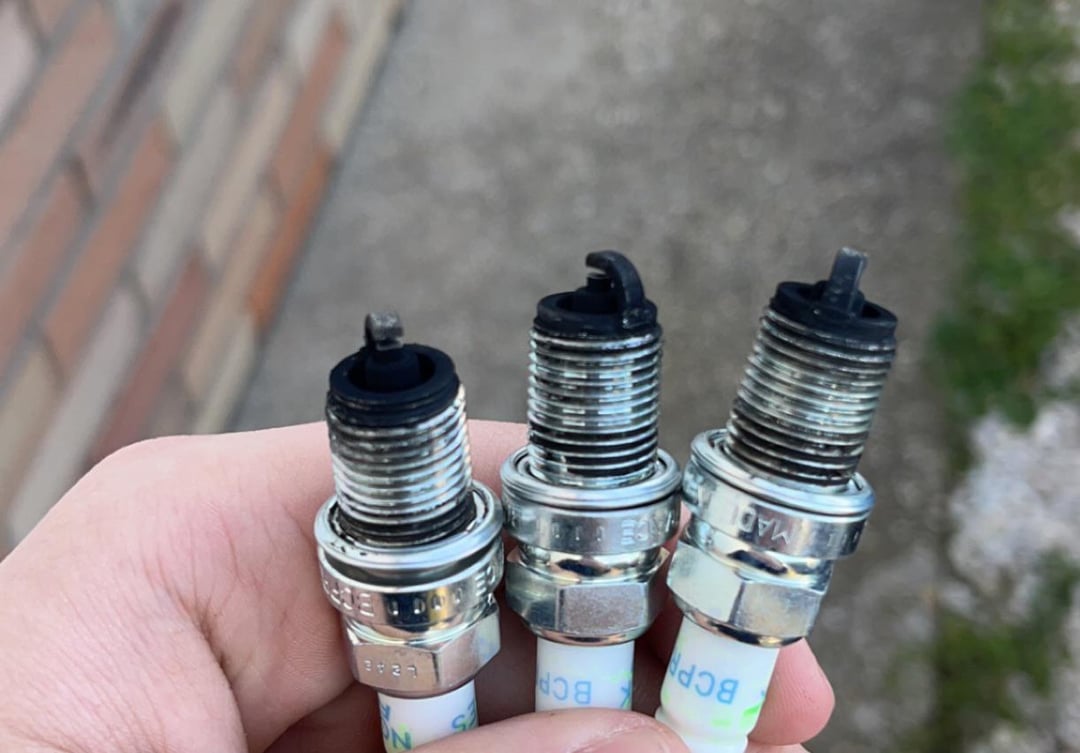What Causes Carbon Buildup On Spark Plugs

Spark plugs, the unsung heroes of internal combustion, are responsible for igniting the air-fuel mixture that powers your engine. However, these crucial components are susceptible to various issues, one of the most common being carbon buildup. Understanding the causes of this buildup is vital for maintaining optimal engine performance, fuel efficiency, and preventing costly repairs. So, what exactly causes carbon buildup on spark plugs, and how can you combat it?
Incomplete Combustion: The Primary Culprit
The most prevalent cause of carbon deposits is incomplete combustion. Ideally, every atom of fuel should completely react with oxygen, producing only carbon dioxide (CO2) and water (H2O). However, various factors can disrupt this ideal scenario, leaving behind unburnt fuel particles that bake onto the spark plug electrodes as carbon. These factors include:
- Rich Air-Fuel Mixture: When the air-fuel mixture is too rich (too much fuel, not enough air), there isn't enough oxygen to completely burn all the fuel. This is a common issue in older carbureted engines or vehicles with malfunctioning fuel injectors or oxygen sensors. A faulty mass airflow sensor (MAF) can also contribute, sending incorrect data to the engine control unit (ECU), leading to a rich mixture.
- Worn Piston Rings and Valve Seals: As engines age, piston rings and valve seals can wear, allowing oil to leak into the combustion chamber. This oil doesn't burn cleanly, leaving behind significant carbon deposits. This condition is often accompanied by blueish exhaust smoke and increased oil consumption. Replacing these worn components can be a significant, but necessary, repair, potentially costing anywhere from a few hundred to several thousand dollars depending on the vehicle and complexity.
- Incorrect Ignition Timing: If the spark plug fires too early or too late, the combustion process may be incomplete. This can be caused by a faulty crankshaft position sensor or a timing belt that has jumped a tooth. Proper ignition timing is crucial for efficient combustion and should be checked during routine maintenance.
- Excessive Idling and Short Trips: Engines that spend a lot of time idling or are primarily used for short trips often don't reach optimal operating temperatures. This hinders complete combustion, leading to carbon buildup. Cold starts are particularly problematic as the engine runs richer during the warm-up phase.
Fuel Quality and Additives
The quality of fuel you use can also play a significant role. Low-grade fuels often contain impurities and additives that don't burn cleanly, contributing to carbon deposits. While some fuel additives claim to clean fuel injectors and combustion chambers, others may leave behind their own residue. It's generally recommended to use high-quality fuel from reputable gas stations and to be cautious when adding aftermarket fuel additives. Consider using a fuel system cleaner periodically, but follow the manufacturer's instructions carefully.
Spark Plug Condition and Selection
The spark plugs themselves can influence carbon buildup. Worn or improperly gapped spark plugs can misfire, leading to incomplete combustion. Using the wrong type of spark plug for your engine can also cause problems. Always consult your vehicle's owner's manual or a reputable parts catalog to ensure you're using the correct spark plugs. Furthermore, plugs with an improper heat range can be too cold, not reaching their self-cleaning temperature, which also causes carbon fouling.
Diagnosis and Solutions
Diagnosing carbon buildup on spark plugs often involves a visual inspection. Black, sooty deposits are a telltale sign. However, it's crucial to identify the underlying cause, not just clean or replace the spark plugs. This may involve checking the air-fuel mixture, performing a compression test to assess piston ring condition, and inspecting the fuel injectors and ignition system.
Solutions include:
- Using high-quality fuel and fuel system cleaners.
- Replacing worn piston rings and valve seals.
- Ensuring proper ignition timing.
- Avoiding excessive idling and short trips when possible.
- Using the correct type of spark plugs and replacing them at the recommended intervals.
- Addressing any underlying engine problems that contribute to incomplete combustion.
By understanding the causes of carbon buildup on spark plugs and taking proactive steps to prevent it, you can ensure your engine runs smoothly, efficiently, and reliably for years to come. Regular maintenance, including spark plug inspection and replacement, is key to preventing carbon fouling and other related issues. Ignoring these signs can lead to more severe engine problems and costly repairs down the road. Consult with a qualified mechanic if you suspect a problem with your engine's combustion process.
